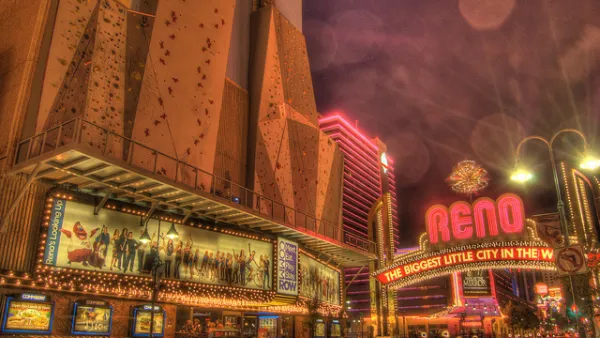Richard Florida chronicles the reasons why high-technology firms are increasingly vacating suburban office parks and "nerdistans" for urban addresses, from London to Los Angeles.
Although the decidedly suburban Silicon Valley remains the world's pre-eminent center of the high-tech industry, start-ups and smaller firms are putting down roots in urban areas such as New York City's Silicon Alley and London's Shoreditch district, in order to lure coveted employees, connect to customers, and spark innovation.
According to Florida, the reasons for this migration are many. For one, "Compared with previous
generations, today's younger techies are less interested in owning cars
and big houses. They prefer to live in central locations, where they can
rent an apartment and use transit or walk or bike to work, and where
there are plenty of nearby options for socializing during nonwork hours."
It's not just young professionals that are attracted to citiesm however. "With all their cultural
and intellectual amenities, urban centers are also the preferred
locales for many leading scientists and engineers."
"An even bigger part of the story is rooted in the changing nature of
technology itself," notes Florida. "A generation or so ago, the fastest-growing high-tech
companies were more like factories," requiring large spaces (most readily and cheaply available in the suburbs) to located their operations. But, "The changing nature of technology-cloud-based applications in
particular-enable new start-ups to succeed more quickly, with smaller
teams and much smaller footprints."
"Cities are central to innovation and new technology," concludes Florida. "They act as giant
petri dishes, where creative types and entrepreneurs rub up against each
other, combining and recombining to spark new ideas, new inventions,
new businesses and new industries."
FULL STORY: The Joys of Urban Tech

Analysis: Cybertruck Fatality Rate Far Exceeds That of Ford Pinto
The Tesla Cybertruck was recalled seven times last year.

National Parks Layoffs Will Cause Communities to Lose Billions
Thousands of essential park workers were laid off this week, just before the busy spring break season.

Retro-silient?: America’s First “Eco-burb,” The Woodlands Turns 50
A master-planned community north of Houston offers lessons on green infrastructure and resilient design, but falls short of its founder’s lofty affordability and walkability goals.

Test News Post 1
This is a summary

Analysis: Cybertruck Fatality Rate Far Exceeds That of Ford Pinto
The Tesla Cybertruck was recalled seven times last year.

Test News Headline 46
Test for the image on the front page.
Urban Design for Planners 1: Software Tools
This six-course series explores essential urban design concepts using open source software and equips planners with the tools they need to participate fully in the urban design process.
Planning for Universal Design
Learn the tools for implementing Universal Design in planning regulations.
EMC Planning Group, Inc.
Planetizen
Planetizen
Mpact (formerly Rail~Volution)
Great Falls Development Authority, Inc.
HUDs Office of Policy Development and Research
NYU Wagner Graduate School of Public Service



























